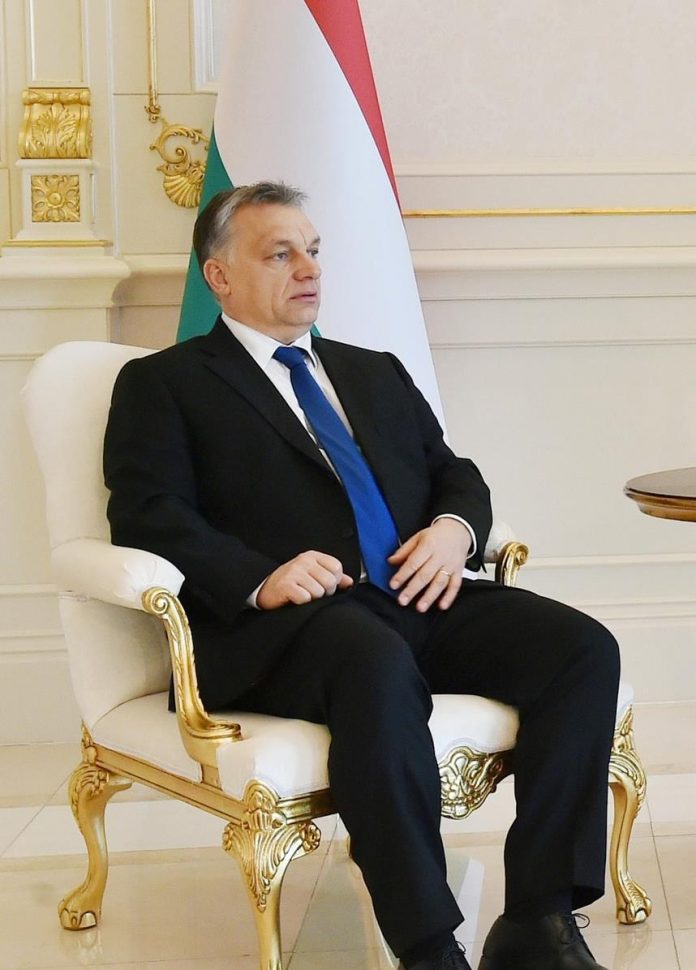
By Máté Hajba
Most political parties in the newly elected European Parliament are fully united in drawing up a ‘cordon sanitaire’ around those parties they deem dangerous. They might be right in their assessment of those parties, but their strategy in undermining them is misguided.
The new party group, Patriots for Europe (PfE) is amassing a sizeable membership, such as France’s Rassemblement National and Fidesz from Hungary. Those parties tend to be populist and highly critical of the EU, but they differ in their stance on NATO and Ukraine. They boast 84 MEPs from 12 countries, making them the 3rd largest group, after EPP and S&D.
Also in the ‘cordon sanitaire’ is the Europe of Sovereign Nations (ESN), another radical group, which welcomed the far-right German AfD after it was unceremoniously booted out of the ID Group. It is smaller than PfE, with only 25 MEPs from 8 countries, making it the smallest political group.
The more centrist-leaning groups continued with their custom of ostracising the far-right, barring these two radical groups from winning any positions in the EP and its committees.
PfE and ESN are indeed a threat to what Europe ought to stand for. They are populists claiming to be for the people left behind when in fact, the collars of their rich politicians were only ever blue in their expensive navy suits. These groups often don’t respect democratic principles and are helping Putin’s efforts. Still, cordoning these parties off is neither fair nor smart.
Orban
The two quarantined parties are accused of not being democratic, but banning representatives of over 15% of elected MEPs from taking any policymaking positions does not set a good example of what democratic leadership looks like. Just because member parties of radical groups such as Hungarian Prime Minister Viktor Orban’s party would not let anyone else near any important position in their home countries, other more centrist parties should not stoop to their level by doing the same thing in Brussels.
It’s not just a moral question. By ostracising representatives, the EP is disrespecting the choice of a considerable number of voters. These people probably voted for radical parties critical of the EU because they were dissatisfied with how things are going. By blatantly disregarding them, they can be more easily radicalised. That’s likely to boost, rather than reduce, Euroscepticism.
Populist parties are on the rise on an anti-elitist ticket. The majority of EU parties, representing the elite, are playing on the fear of anti-elitist voters by forcefully preserving the status quo.
By not giving radicals a platform, EU politicians admit they are unable to beat them democratically by winning hearts and minds and must resort to dirty backroom tricks instead.
A stagnant political elite
That is the problem of a stagnant political elite. They are unwilling to accept or even properly acknowledge the emergence of new disruptions. This creates a stalwart lack of competition. Without competition, there is no progress, nor are the changing wishes of the citizens properly answered. The elites might react to new winds blowing by trying to shelter themselves but that is unsustainable. The problem needs addressing and it is no easy feat.
The two radical party families are reacting to an all-too-real problem. People are dissatisfied. The populist solutions on offer from radical parties might well be flawed or even deceitful, but condemning them to the political sidelines will not make the original problem go away. Simply putting up a ‘cordon sanitaire’ will not stop the popularity of radicals. In fact, it will help their case in the longer term.
A lack of fierce competition up against new political movements has made politicians complacent. They were never really forced to offer up alternatives, real solutions or better conditions for citizens. EU politicians must be better than this. They must beat anti-democratic radicals by offering better alternatives. They must leave the stupor of the current status quo and win hearts and minds.
The emergence of the current radical movement is a bad omen for Europe, but the current solution is not any better. The status quo will not hold either way. If the EU is not changing for the better, it will soon change for the worse.
Máté Hajba is a Hungarian writer and a fellow with Young Voices Europe. Máté runs the Free Market Foundation, a Hungarian libertarian think tank. He was formerly the editor of the Liberal Voices Syndicated project of the 4liberty network.
Disclaimer: www.BrusselsReport.eu will under no circumstance be held legally responsible or liable for the content of any article appearing on the website, as only the author of an article is legally responsible for that, also in accordance with the terms of use.












